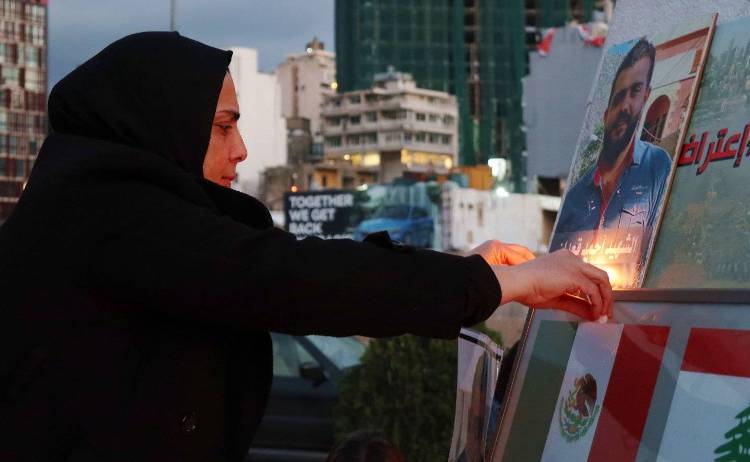UN Expert Urges Accountability for Civilian Deaths Amid Israel-Lebanon Hostilities
Concluding his official visit to the country, the UN expert underscored that “every potentially unlawful death must count,” stressing that no life lost in conflict should be reduced to a statistic.

UN Special Rapporteur on extrajudicial, summary or arbitrary executions, Morris Tidball-Binz, has called for justice, accountability, and truth for survivors and families of those killed in Lebanon, amid the devastating consequences of ongoing hostilities between Israel and Lebanon. Concluding his official visit to the country, the UN expert underscored that “every potentially unlawful death must count,” stressing that no life lost in conflict should be reduced to a statistic.
Human Rights and the Pursuit of Justice
In a statement marking the end of his visit, Tidball-Binz reaffirmed that Lebanon has the legal mechanisms and institutional capacity to pursue justice for victims of violence, urging authorities to act swiftly to uphold the rule of law. “Every family is entitled to truth and justice,” he said, emphasizing that legal accountability is not only a human right but a moral imperative.
He also paid tribute to the many journalists, healthcare workers, emergency responders, and humanitarian personnel who continue to serve the public under life-threatening conditions. “Their courage and commitment embody the resilience of Lebanon’s civil society,” he said, expressing solidarity with those who have lost colleagues and loved ones in the line of duty.
Strengthening Lebanon’s Judicial Independence
Tidball-Binz commended ongoing legislative efforts to reinforce the independence of the Lebanese judiciary. He urged authorities to ensure that investigations into potential international crimes are prompt, impartial, and transparent, in accordance with both international human rights law and international humanitarian law.
“Accountability requires effective and independent investigations and criminal proceedings that enable access to justice and reparation for victims and their families,” the Special Rapporteur stressed. His remarks come at a time when Lebanon continues to grapple with overlapping political, economic, and humanitarian crises, which have strained its justice system and weakened institutional capacity.
Forensic Capacity: The Cornerstone of Accountability
A forensic doctor himself, Tidball-Binz identified an urgent need to strengthen Lebanon’s medico-legal death investigation capacity. He explained that credible investigations into unlawful deaths depend heavily on modern forensic systems capable of determining the cause, manner, and circumstances of death.
During his mission, he discussed the potential establishment of a National Medico-Legal Institute, designed to operate under standardised procedures and independent oversight. This institute would play a crucial role in handling cases of suspected unlawful killings, custodial deaths, suicides, or potential war crimes.
“Building modern forensic capacity, consistent with the Minnesota Protocol on the Investigation of Potentially Unlawful Death (2016), is indispensable to credible investigations,” Tidball-Binz said. The Minnesota Protocol provides internationally recognized standards for the effective investigation of deaths potentially caused by violations of human rights.
Victim-Centred Investigations and Transparency
Tidball-Binz emphasized that investigations must be victim-centred and participatory, ensuring meaningful involvement of affected families and the protection of witnesses and professionals. He also highlighted the need for systematic data collection, public reporting on casualties, and inter-agency coordination between justice, health, and security institutions.
He noted that preserving evidence, ensuring the chain of custody, and maintaining transparency are essential for establishing accountability and rebuilding public trust. Effective investigations, he added, are not merely bureaucratic processes but essential steps toward reconciliation and preventing future violations.
Engagement Across Lebanon
Throughout his visit, the Special Rapporteur met with a wide range of stakeholders — including government officials, judges, prosecutors, security and investigative authorities, medical and forensic experts, UN representatives, civil society organizations, academics, and survivors. His itinerary covered several regions, including Beirut, Naqoura, Tyre, Saida, Nabatiyeh, Baalbek, and Tripoli, reflecting a broad engagement with diverse communities affected by the conflict.
Tidball-Binz expressed gratitude for the cooperation extended by Lebanese authorities and the constructive input from all interlocutors. “The people of Lebanon have endured immense suffering. Their demand for truth and justice is legitimate, and it must be met with concrete action,” he said.
Next Steps: Reporting to the Human Rights Council
The Special Rapporteur will present a comprehensive report on his findings to the UN Human Rights Council in June 2026. The report is expected to include recommendations for strengthening Lebanon’s accountability mechanisms, building institutional capacity for forensic investigation, and ensuring that human rights obligations are upheld in times of conflict.
As Lebanon continues to navigate one of its most challenging periods, Tidball-Binz’s visit highlights the critical need for truth, justice, and institutional reform — not only to address the legacy of violence but to secure a more equitable and transparent future for all Lebanese citizens.










